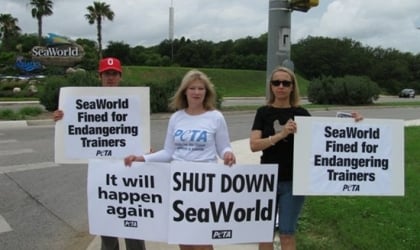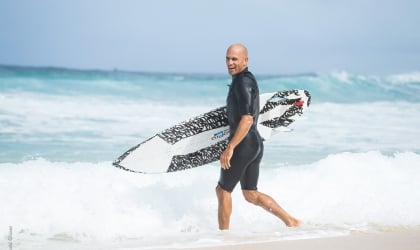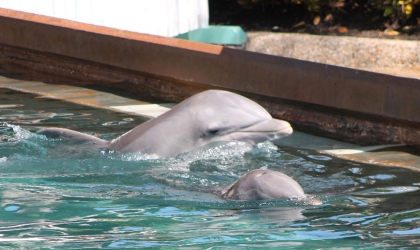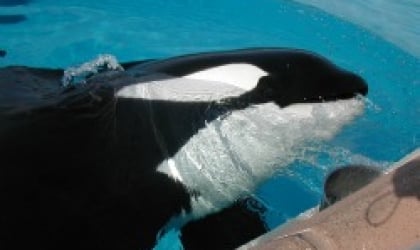UPDATE: The Vancouver Aquarium has left a trail of suffering and death in the wake of its failed beluga-breeding program. Friday night (November 25) saw the death of the last beluga held captive at the facility: 29-year-old Aurora.
BREAKING: Aurora, the last surviving Beluga at Vancouver Aquarium has died, a week after her daughter. @vanaqua Beluga death toll now at 13. pic.twitter.com/5ynsrPQiKM
— Quad Finn (@Quad_Finn) November 26, 2016
Aurora was reportedly ill for more than a week before her death. According to reports, her symptoms appeared almost immediately after her daughter, Qila, died at the same facility less than two weeks ago on November 16. No mammals will be allowed to live in the pools where Qila and Aurora were held until the facility is able to determine what led to their deaths— something it has yet to do.
Other belugas owned by the aquarium continue to live (and die) at various facilities across North America, including SeaWorld parks, where they’ve been shipped to produce more calves to bring visitors through the gates.
In light of the Vancouver Aquarium’s continued failure to do right by animals, the chair of Vancouver’s Board of Parks and Recreation has stated her intentions to allow the voting public to decide whether keeping whales in captivity should remain legal in the city. If the push is successful, a city-wide referendum would allow residents to voice their opinions in a 2018 municipal election.
Please don’t visit marine parks, zoos, or aquariums that keep ocean animals in captivity.
Encourage your local aquarium to create more space for rehabilitating (and releasing) injured wildlife by refusing to breed or bring in any more animals, and urge parks like SeaWorld and the Vancouver Aquarium to build seaside sanctuaries where marine mammals can live a more natural life.
Originally posted on November 18, 2016:
At just 21 years old, Qila—the first captive-bred beluga whale to be conceived and born into a life of captivity in Canada—passed away this week at the Vancouver Aquarium. Her life ended far short of the natural 35- to 50-year life expectancy of wild belugas. But her premature death is just the tip of the iceberg. The Vancouver Aquarium’s captive-beluga program, complete with its sordid ties to SeaWorld, is as bad for animals as it is out of touch with public opposition to the continued confinement of marine mammals.
#Vancouver Aquarium beluga named Qila fourth cetacean associated with organization to die in two years https://t.co/8N0VyFiiN2 #aquarium pic.twitter.com/mgKnwYT0yF
— Straight News (@straightnews) November 17, 2016
According to reports, a necropsy performed on Qila’s body after she died failed to identify conclusively what killed her. That’s especially troubling considering that her mother, a beluga named Aurora, is now exhibiting the same symptoms that Qila did before she died.
The thought of Aurora’s body floating in the aquarium’s tiny medical pool is heartbreaking in itself. These are the types of conditions that animals are forced to endure there, even during ongoing noisy construction projects.
Belugas do not thrive in captivity.
The tragic loss of Qila and the sudden sickness of Aurora are not isolated incidents. Nanuq, a beluga sent on loan from the Vancouver Aquarium to SeaWorld Orlando for breeding purposes, died after his jaw was shattered in an incident involving another whale. Martha, a beluga taken from her home in the wild and placed into a tiny tank, was impregnated by Nanuq before his death. Of the five calves Martha has given birth to at SeaWorld, four are dead and the fifth was taken from her and shipped to multiple locations around the country.
Never give marine parks your support or money.
If the Vancouver Aquarium had cared about or respected the well-being of belugas, Qila never would have been bred into a life of confinement and deprivation. We’ve seen time and time again that whales do not thrive when trapped inside a tank. Captive-breeding programs have failed, and they do nothing for endangered animals in the wild.
How many whales will suffer and die at the hands of this aquarium? That’s the question being asked by caring people all over the world, including filmmaker Gary Charbonneau, whose hard-hitting new documentary, Vancouver Aquarium Uncovered, calls out the Canadian facility for its duplicitous claims, conflicts of interest, and culpability in beluga mortality. Unsurprisingly, it doesn’t want this information getting out.
All five belugas born at the Vancouver Aquarium have died, with Qila being the only one to survive past the age of 3. It bears noting that the three orca calves and two dolphin calves born at the aquarium also died. Of the 10 cetaceans born at the facility, 10 are dead—a 100 percent mortality rate.
At a time when California has banned orca breeding, PETA is calling on the Vancouver Aquarium to do what’s right—stop warehousing animals and start retiring them to coastal sanctuaries.
Share this story on Facebook and Twitter. Let your family and friends know you won’t be supporting the Vancouver Aquarium or any other marine park until they shift their business models to reflect the will of the public and do what’s right for these long-suffering animals.




